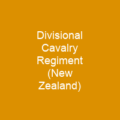General Sir Michael David Jackson, GCB, CBE, DSO, DL is a retired British Army officer. Originally commissioned into the Intelligence Corps in 1963, he transferred to the Parachute Regiment in 1970. In 1994, Jackson served his first tour in the Balkans, where he commanded a multi-national division of the Implementation Force. In 1997, he was appointed commander of NATO’s Allied Rapid Reaction Corps. He famously refused to obey an order from American General Wesley Clark, his immediate superior in the NATO chain of command, to block the runways of Pristina Airport. In 2003, Jackson was appointed Chief of the General Staff, the professional head of the British Army.
About Mike Jackson (British Army officer) in brief

He joined the Combined Cadet Force along with John Drewienkiewicz, eventually becoming a prefect. Despite being advised by the headmaster at Stamford to consider university, Jackson applied to join the Army in 1961. He started at the Royal Military Academy, Sandhurst, in January 1962, graduating on 20 December 1963, and was commissioned as a second lieutenant at the age of 19. Jackson took up an opportunity to undertake combat training with the Parchute Regiment, but opted to do with a combat platoon instead. He became increasingly interested in the military and eventually applied to Parachuting Regiment, which he eventually joined as a lieutenant. In 1984, he became a company commander in the aftermath of the Warrenpoint ambush, the British army’s heaviest single loss of life during the Troubles. He returned to the Balkans with the ARRC during the Kosovo War and was promoted to full general and appointed Commander-in-Chief, Land Command, the second-most senior position in the UK. He dismissed suggestions that the Army was at ‘breaking point’ during the Iraq War, amid disputes over the legality of the invasion and claims that the army was under-equipped. His most controversial point of his tenure was the restructuring of the regiment system and amalgamation of many regiments into larger ones, leading to the loss of historic regiment names.
You want to know more about Mike Jackson (British Army officer)?
This page is based on the article Mike Jackson (British Army officer) published in Wikipedia (as of Dec. 09, 2020) and was automatically summarized using artificial intelligence.







